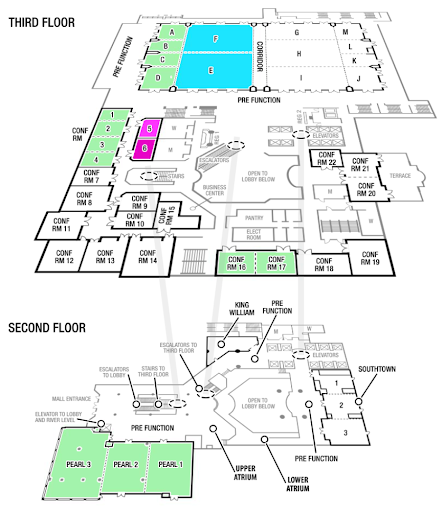Breakout Session Three
March 28, 2024 | 9:30 - 10:30 AM
Sustaining Paid Residency &
Strategic Staffing Models through
Shared Governance
After Strategic Staffing Technical Assistance ends, how will your EPP and district partnership continue to reflect, refine and revise paid-residencies via Strategic Staffing Models? Shared Governance is a structure that exists at many EPPs for unpaid residency and the cornerstone of shared Governance is data sharing and problem solving. In this session we will explore how Strategic Staffing data can become a recurring topic at Governance meetings to ensure paid-residency sustains and scales post Strategic Staffing Technical Assistance.
Room | Conference Room 1-2
Regional Partnerships: School Districts Partnering with 2 or More Educator Preparation Programs to Implement Strategic Staffing
School districts often collaborate with several educator preparation programs (EPPs). The structure and requirements of these programs can vary significantly, including timelines, coursework, and the duration of residents' clinical teaching placements. This variability can present challenges for districts in meeting the unique needs of each partnership. In this session, representatives from five school districts will discuss the highlights and challenges of working with diverse EPPs. They will also share how cohesive structures have supported the successful implementation of paid residencies that incorporate additional responsibilities for Residents.
Room |
Salon D
3 E's of Strategic Recruiting: Expectations, Engagement, and Events
Fort Worth ISD and Texas Tech University will share examples and ideas for their collaborative partnership aimed at recruiting and retaining a pipeline of teachers within the urban district of Fort Worth. Participants will gain valuable knowledge on how this alliance effectively taps into the local community to nurture and retain dedicated educators. Explore innovative strategies that not only address the pressing need for teachers in urban areas but also foster long-term commitment. Walk away with actionable approaches to strengthen partnerships between educational institutions and local communities, ensuring a sustainable future for urban education.
Room |
Conference Room 16-17
Upskilling Talent Through a Paraprofessional-to-Teacher Program
Many regions are exploring how they can tap into their own communities to recruit quality candidates into the field of teaching, and they’re starting by looking at paraprofessionals and teacher aides as potential aspiring teachers. In this session, Dallas College will present their para-to-teacher program which was launched in partnership with three school systems. Participants will hear keys to success around the innovative design of the program and discuss the cohort model for each partner pipeline, as well as some of their early wins.
Room |
Pearl 1
Insights and Reflections: Two Years of Research on Paid Teacher Residency Models
For the past two years, EPIC has partnered with technical assistance providers, educator preparation programs (EPPs), and local education agencies (LEAs) in Texas and California to understand the design, planning, and implementation of paid teacher residency models. This work has included reviews of program documents, surveys and interviews with a range of stakeholders, and initial analyses of administrative data. Collectively, these data have afforded us an opportunity to identify key successes and challenges in the design and implementation of paid residency models and promising directions for future practice and research.
In this session, we highlight findings from our evaluation, including EPP and LEA perspectives on their partnerships and ways to enhance model design/planning, resident perceptions of their preparation experiences and financial well-being, questions regarding the selection of residency sites and the placement of residents, and longer-term concerns regarding financial sustainability and strong pipelines of residents and mentors. Beyond a review of key findings, we will engage session participants in a conversation about future stages of the evaluation, especially participants’ perspectives on upcoming data collection and foci of our work.
Overall, this session is an opportunity for participants to learn about key successes and challenges in paid teacher residency models and help shape the future directions of our learning.
Room |
Pearl 2
Navigating Financial Waters and Building Collaborative Bridges in San Antonio
Join our dynamic panel who converged to strategize on sustainable funding approaches and foster collaboration in the San Antonio area. Delve into the financial considerations, lessons learned, and innovative meeting structure used to shape the future of Strategic Staffing.
Room |
Salon A
Scaling and Sustaining
Strategic Staffing
Discover how Ector County ISD scaled strategic staffing to twenty-three schools over a four year time period. Learn about the roles, structures, and processes they have in place to support and maintain their strategic staffing model.
Room |
Salon B
The Role of Site Coordinators in Strategic Staffing Design and Innovative Practices for Sustainability
University-school partnerships working toward equitable access to high-quality education experiences for all children and candidates must rethink how their institutions work together, in partnership, and collectively respond to meet the diverse needs of their communities and workforce. This session will engage participants in learning about the journey of the El Paso region in the implementation and scaling of Strategic Staffing. Participants will hear directly from the lead Site Coordinator and learn about the innovative practices being implemented for sustainability of Strategic Staffing across the region.
Room |
Salon C
Balancing Residency Integrity
with District Needs
In this session, you will learn how universities and school districts work together to develop paid residency experiences that protect candidates' time co-teaching with a trained mentor teacher but also honor the financial commitment and district needs.
Room |
Conference 3-4


